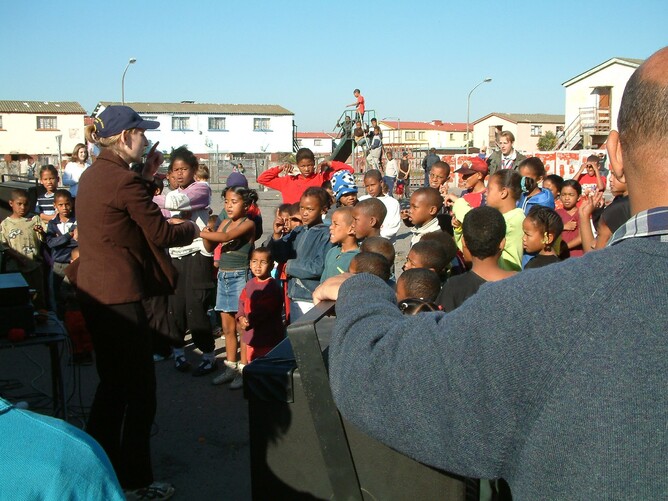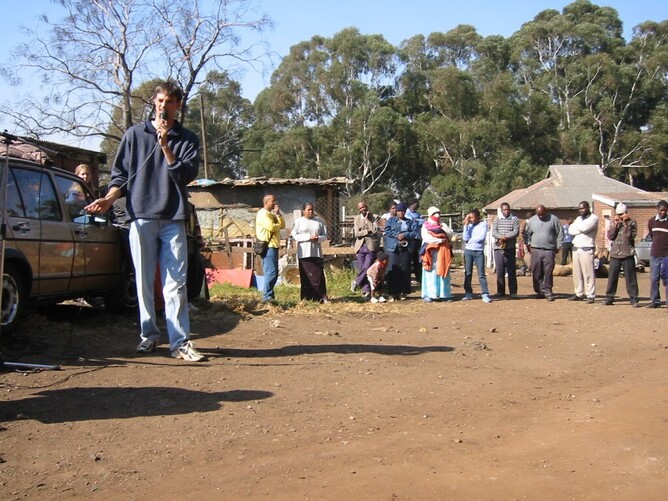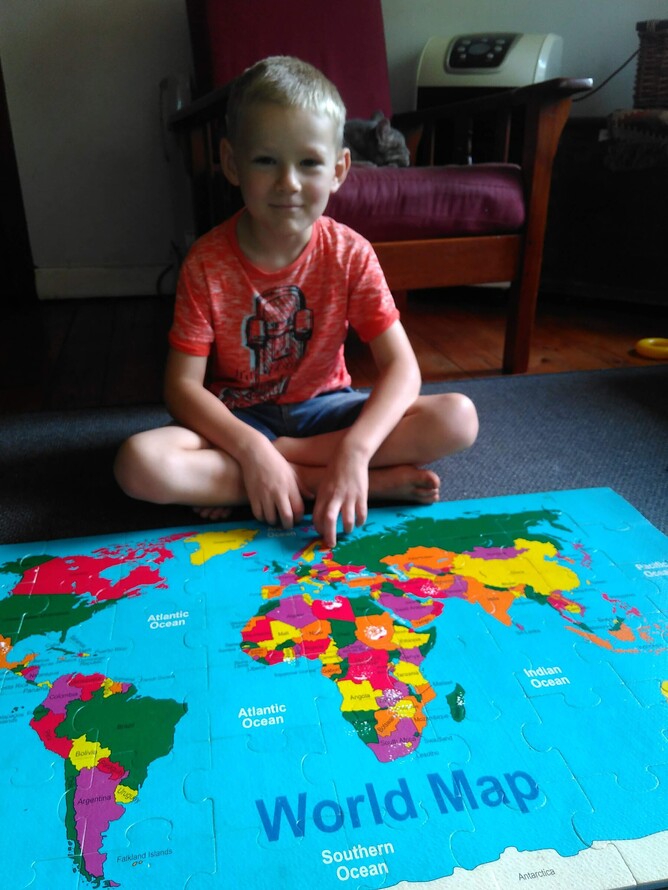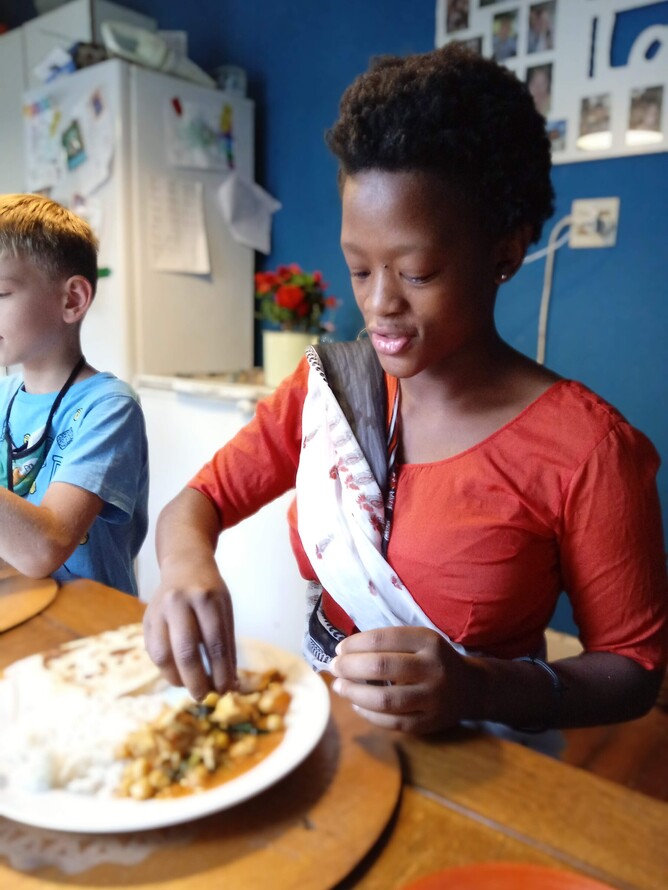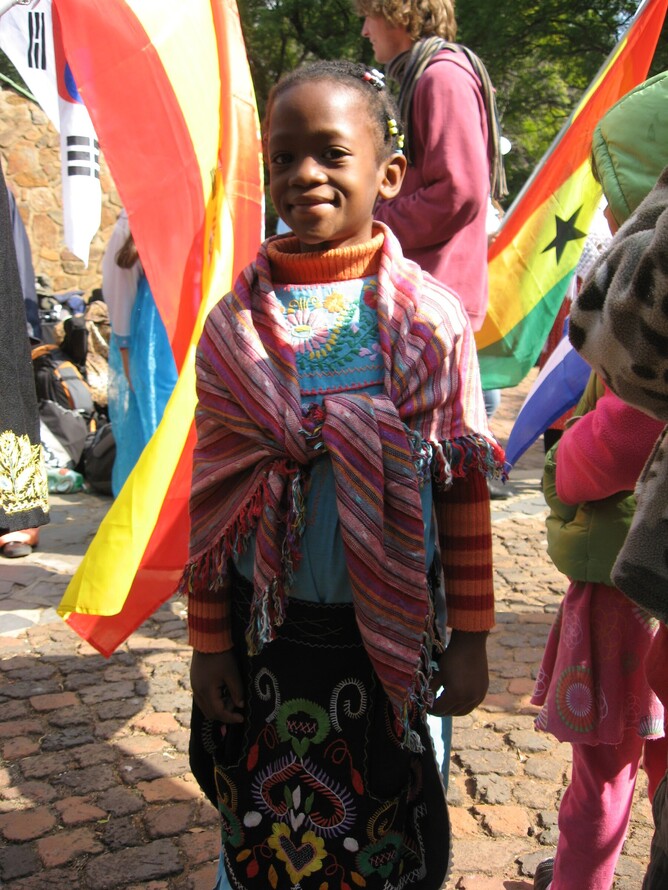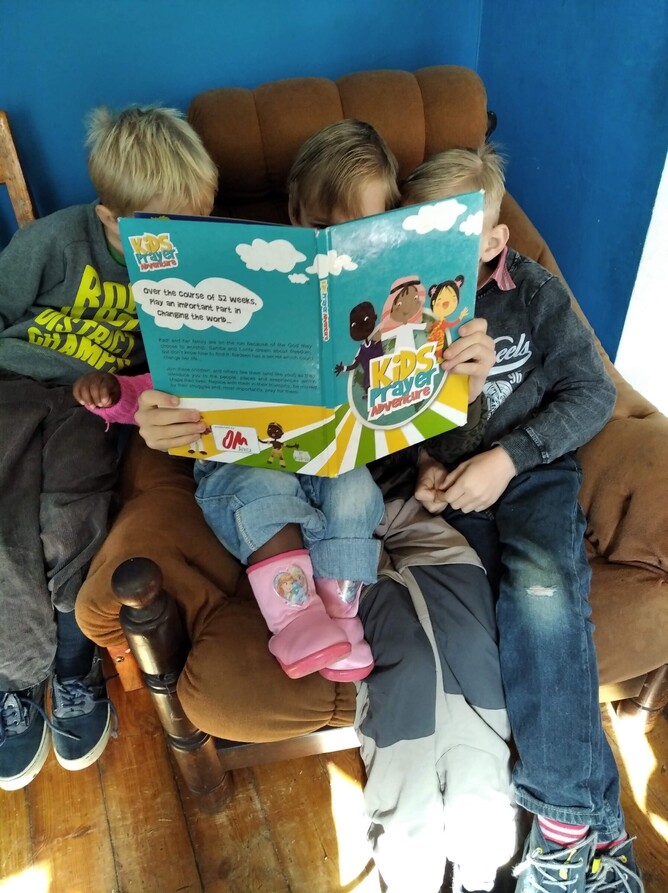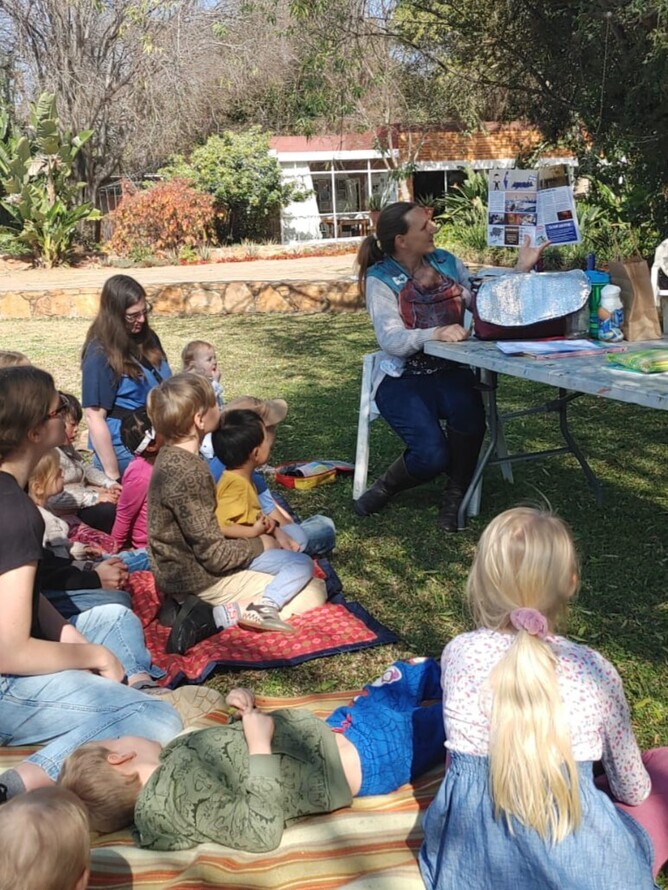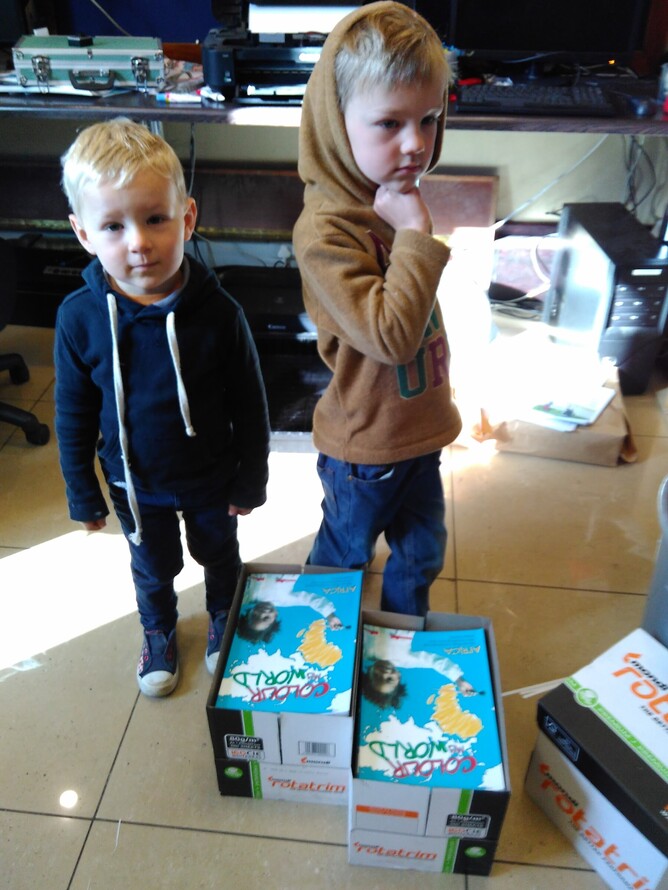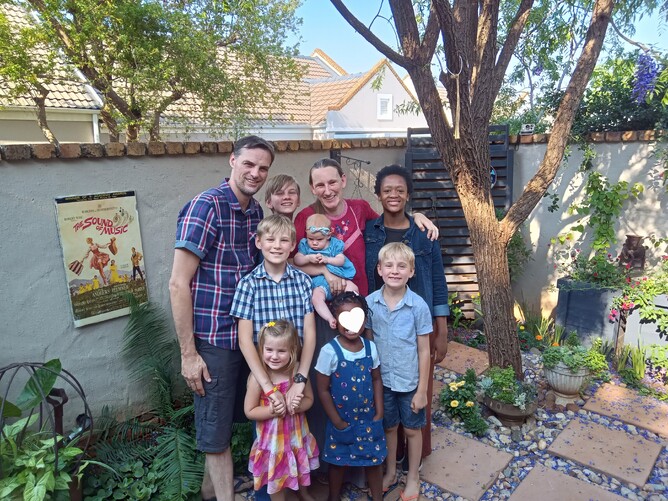My own “Pathway to Missions” began almost 20 years ago, with a small, yellow flyer I happened to pick up in the church foyer, an unexpected (to me, at least) and tearful, “Here I am, Lord; Send me!” in the church car park and then an amazing, eye-opening two weeks in Cape Town, South Africa on short-term outreach. I happen to think it is a great story; but it is not the story I plan to share right now (come by my house sometime for a cuppa, and I’ll happily tell you!). Rather, I want to focus on how my husband, Herman, learned about the need for the Gospel throughout the world as a young child, and how his experience has encouraged us to become excited about mobilising children for global missions, particularly the children God has entrusted to us to parent.
I’m sure you can imagine that growing up in South Africa in the 1980s and 90s was something of a tumultuous experience. Herman recalls being on the “bomb squad” at his Johannesburg primary school; the fears and uncertainties during those decades, which were fed by the apartheid government and its sanctioned media, as it clung to power; the excitement, but also trepidation, which came along with the first democratic elections, and the fall of apartheid in 1994. Around this same time, Herman’s parents came to know Jesus Christ in a real, life-changing way. Very suddenly, his family life became “missional”, with a focus not just on the huge need for evangelism and discipleship on his own doorstep – Herman remembers seeing his grandparents go on outreaches to rural areas of South Africa and Botswana and serving alongside his parents as they did inner-city street evangelism – but also in far-flung reaches of the world. Resources such as “You Can Change the World” and “Operation World” helped Herman’s family to pray in a strategic way for world missions, as they together read biographies of historical missionaries and supported friends who were serving in missions in Russia, Madagascar, and onboard OM’s ship ministry. It is probably not so surprising, therefore, that when Herman finished school and then university, it was with his eyes already fixed on the goal of serving God through involvement in world missions. At the end of this year, Herman will have reached the milestone of 20 years with Operation Mobilization – and it all began in his childhood.
Now that we are parents, we hope to inspire our own children to develop hearts for the nations. Whether they are ultimately led by God to serve fulltime in an international, cross-cultural context, or rather to support other missionaries in prayer and financially, we pray that our children will come to understand that the Great Commission to “go and make disciples of all nations” is not an optional add-on to our walk with Jesus Christ, but one of the main points. There are some very intentional practices and habits that we incorporate into our family life that are certainly made easier for us because of our personal experience in and connections to the “missions world”, but I think are still possible for any family, in any walk of life, to take on board in order to foster a missions culture within the walls of their own home.
Firstly, we pray together as a family; not just for our own needs, and for our local community, but for the whole world. We talk to our children (in an age-appropriate way) about what is going on internationally and intercede for these situations. There are a few countries and cultures which our family is particularly interested in personally, and we all enjoy watching out for mentions about these far-off people and places in the media, so that we can make note of and pray specifically for their needs – and see God ANSWER our prayers, too! Some years ago, Herman and I helped to create a book called the “Kids Prayer Adventure”, which profiles 52 different countries/religions, and includes stories, interesting facts, and suggestions for how to pray; our own family uses this tool by reading a page and praying together each Sunday evening. Although the book is now very out of date (we have plans to update it, but just haven’t quite gotten there yet), it is still a helpful resource, and we know many other families who use it, or other books like it, to assist them in praying diligently and thoughtfully with their children for the world.
On occasion, we have used the opportunity presented by big sporting events (such as the Olympics, or a rugby/soccer/cricket World Cup) to try and learn the flags of the countries represented, as well as some information about them, so that we can make a point of praying for them intelligently. There was a season a few years ago when our eldest daughter would, every Friday evening, cook a different cultural meal for us to enjoy (or not! Borsht was not so appreciated, unfortunately), and then we would dress up (as best we could) in the appropriate cultural clothing, and pray together for the people whose food and clothing we were experiencing. More recently, a group of other home-schooling mums and I have started gathering our crews together once a month, where we “fly” to another country (the children are enjoying getting lots of stamps in their play passports), learn together a bit about the country’s geography, colour a flag, do a little science experiment related to the country (last month the children tried to build “earthquake-proof” Lego towers for our lesson about Japan), and then, once again, pray for the country. The point to all these activities is not so much to fill our children’s heads with random geopolitical trivia (although there’s always the hope that they might just have a shot at “Who Wants to Be a Millionaire?”!) but to make them aware of and develop a heart for people and places beyond just their familiar home environment.
It is important to pray for missionaries themselves, too, and we have discovered that it is easier to pray for people when you KNOW them! One of the blessings of working with a missions agency is that we have plenty of opportunities to host missionaries from many different cultures and countries in our home, either just with a single meal or a few nights of accommodation; however, I’m sure it is a habit which any family, anywhere in the world, could develop by simply extending an invitation. Around our meal table, our children have heard stories from people who have served on every single continent (except Antarctica, obviously), about the great needs in the world, about struggles faced and real sacrifices made, but most importantly, about God’s great faithfulness, and how he answers prayers, provides for needs and rescues the lost, sometimes in spectacularly miraculous ways!
Stories from great (although still, of course, human and fallible) missionaries from history are also a great encouragement and inspiration to all of us, including our children. There are many excellent missionary biographies (Gladys Aylward, George Müller, Corrie ten Boom and Eric Liddell are some of our favourites) which we have enjoyed reading aloud as a family, or more often these days, listening to as an audiobook during our many car journeys throughout the week. There is also a series on YouTube called “Torchlighters”, which profiles Christian heroes of the faith, and our older children really enjoy.
Of course, being a family “on mission” means more than just looking to the need for the gospel at the ends of the Earth, but considering how we can be Jesus’ witnesses in our own particular Jerusalem as well. One of our family values is “to be a blessing”; a trip to the grocery store is just as much about looking for opportunities to speak respectfully to people, offer encouragement, serve without need for reward or just generally live out the Gospel in a visible way, as it is about filling our trolley. We pray for “divine appointments” as we go about our day – and then ask to pray with and for the people we encounter. My children don’t have the same reservations about praying with a stranger on the street (or even a new friend in our home) as I do! I trust that God can use those prayers to change not only the person being prayed for, but my child also.
I’m not at all suggesting that this is some foolproof “recipe” for cooking up a new generation of missional believers from amongst our children. Childrearing simply isn’t formulaic like that (nor is much of life at all, actually). I also don’t currently have an awful lot of results to show to justify the effectiveness of our methods. Of our seven children, only one is beyond the teen years; and whilst, actually, she is currently serving in cross-cultural missions (with the hope of working in the Arab world one day), when I asked her, as research for writing this article, if there was anything specific her Dad and I had done or taught her which had helped to set her on this path, she said (with very characteristic bluntness and honesty): “No, not really. It was all God”. I was only offended for about two and a half minutes before realising that this was the perfect answer.
Above all, we hope to raise our children to want to be obedient to the Lord God’s calling on their lives, to understand the depth of His grief over the lostness of the world and to reflect His great love for the nations of the world – not, out of a misguided sense of loyalty or even spiritual laziness, to simply follow in the footsteps of their parents. The wisdom of Proverbs 22:6 puts it best: “Train up a child in the way he should go; even when he is old he will not depart from it.” May that way for my children, and yours also, lead them to the path of obedience to Jesus Christ.
By Belinda Lamprecht

